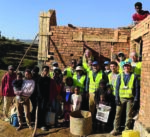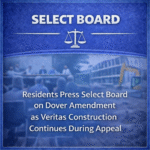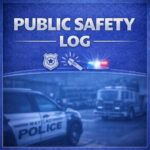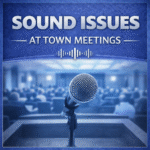The Select Board met remotely on August 4 to discuss topics including area transit, Sherman’s Bridge and town water.
Transit updates from MWRTA
The MetroWest Regional Transit Authority (MWRTA) is a regional public transit authority providing bus and paratransit service to 16 municipalities that began service on July 1, 2007. Joe Nolan, Wayland’s MWRTA representative, and administrator Jim Nee reviewed the services the MWRTA provides to Wayland in fulfilling its mission to increase mass transit.
MassDOT reauthorized the TryTransit Program so the MWRTA riders will continue to have fare free options, no card required. For more information, see www.mwrta.com.
The fixed bus routes (10 and 11) operate mainly in Natick with some service into Cochituate at Bent Park, Cochituate School Village and other stops as flagged down. The total ridership for Natick and Wayland for fiscal year 2024 was about 35,000 for last year and projected to be about 50,000 this year.
ADA paratransit service is required within a three-quarter mile radius of any fixed route. MetroWest RIDE currently provides extended ADA paratransit service to those who cannot independently access fixed route buses and made roughly 1,000 trips last year. All of Wayland is covered as a service area.
Dial-A-Ride (which helps those over 65 or those under 65 and disabled) gave about 3,800 rides.
A joint venture between MWRTA and the Sudbury and Wayland senior centers used a state grant to start a pilot program to take residents into and back from downtown Boston hospitals on a direct shuttle service with set times, providing about 200 trips last year.
The MWRTA has a total staff of 140 with drivers, dispatchers, managers, supervisors, and trainers at 15 Blandin Ave. hub in Framingham. The Boston Region Metropolitan Planning Organization (MPO) is responsible for conducting the federally required metropolitan transportation planning process for the Boston metropolitan area. The Boston MPO has awarded funding for a new purpose-built operations center for the drivers as the agency scales up its services.
Any federal funding changes are expected to delay rather than cancel operations as the funding has been quickly obligated. The Urbanized Area [pop. >50,000] Formula Funding 5307 program metrics lowered MWRTA’s share from approximately $3.0 million to $2.9 million. The discretionary grants are to be determined, especially for clean energy. The MWRTA has initiatives to pilot electric vans and convert the fleet to CNG (compressed natural gas).
Three new larger buses from Gillig that seat 29 and can hold up to 50 riders run entirely on CNG fuel (compressed natural gas). The buses were purchased with federal and state funds, including $392,000 from the Regional Transit Authority Capital program. The Gillig buses operate on the busiest route between downtown Framingham and the Natick Mall.
Board members discussed promoting ridership through town and Council on Aging newsletters, as well as requesting adding a future stop at the proposed 212 Cochituate Road housing.
Design review guidelines
Design Review Advisory Board Chair Bill Sterling urged a short-term zoning amendment for the spring 2026 Annual Town Meeting to add enforceable New England Village design criteria for Route 20 development ahead of a longer corridor rezoning process. The board encouraged Sterling to work with his board, the Planning Board, and other permitting bodies to form a new working group.
Sherman’s Bridge repairs
Town Manager Michael McCall was authorized to sign an intermunicipal agreement (IMA) with Sudbury for priority repairs to Sherman’s Bridge, which MassDOT has rated in “severe” condition. The $1.65 million project will be funded through $325,000 in MassDOT material and repairs mostly performed by MassDOT paid contractors. Sudbury and Wayland will share the balance of the costs of about $637,500 each, with Wayland acting as lead on procurement and contract administration.
A combination of prior Town Meeting roadway appropriations and Chapter 90 funds will be used to pay Wayland’s share. Chapter 90 funds provide annual funding to municipalities for capital improvements on local public ways. The design is underway with a public outreach forum planned for early fall, and construction to be expected to commence in the spring 2026.
Select Board/Town Manager goals
The finalized goals were approved:
- Continue implementation of effective governance consistent with the Select Board/Town Manager Act, including streamlining the Annual Town Meeting warrant and reviewing the roles of and responsibilities of town boards and committees.
- Advance the creation of affordable housing as per the Housing Production Plan with emphasis on possible projects at 212 Cochituate Road and Town Center.
- Develop and implement measurable progress on Route 20 corridor that promotes economic development and employment growth including integration of review functions and participating in a joint task force.
- Identify financial constraints, including possible operating overrides and/or debt exclusion articles, as well as the impact of implementing a long-range asset maintenance and capital improvement plan.
- Review, amend and/or promulgate town policies, particularly with respect to the Select Board Manual and finalizing the financial, purchasing, acceptance of land and naming options.
McCall’s objectives include avoiding an FY27 override, completing collective bargaining, advancing capital planning, and implementing a regional 911 public safety dispatch center.
Licensing for Takara
The board unanimously approved Wei Zheng TWZ Group’s request to transfer the Takara Japanese Restaurant’s all-alcohol license from 15 Elissa Ave. to 21 Andrew Ave., and to allow alcohol service at a new 20- to 25-seat outdoor dining area.
Town water supply
Select Board member William Whitney again questioned the scope and cost of the proposed $38.6 million MWRA connection and Happy Hollow PFAS treatment plant project. As designed, a new permanent treatment facility at Happy Hollow would meet roughly 85% of the town’s peak water demand, with MWRA-supplied water supplying the remaining 15% as needed and providing redundancy in the event of local supply or equipment failure.
The debate continues about how to pay the eventual $38 million price tag and how that cost will be distributed to residents in either property taxes or higher water rates. Whatever the decision, the financing choices need to be resolved before the 2026 Annual Town Meeting.
Whitney suggested engaging an independent engineer to review the project scope and alternatives before committing funding. He argued that the additional cost of constructing the Happy Hollow permanent treatment plant was high compared with connecting to the MWRA alone, and he wanted outside confirmation there were no lower cost design options from a peer reviewer.
The MWRA connection and debate over a hybrid option has been a topic at the Board of Public Works since engineering consulting firm Kleinfelder’s first presentation on Aug. 17, 2021. The design review and permitting process was expected then to take a minimum of three years before construction started.
On Feb. 24, 2025, the Select Board held a joint discussion with the Board of Public Works and deferred action. Then on Feb. 26, 2025, the Select Board voted 5–0 to authorize the Town Manager to execute a contract amendment to complete the 30% design of the MWRA connection. At the 2025 ATM, $1.23 million was approved in the Water Enterprise capital budget to pay for designs that included an upgrade to a larger, permanent Happy Hollow Wells treatment plant as part of a hybrid MWRA connection.
The August 4 meeting was the fifth time that the MWRA connection has been on the Select Board agenda in 2025. Board members debated timing, potential funding approaches — including the option provided by MGL Chapter 59, Section 21C(n) (see tinyurl.com/wp-tax-law) to shift some or all of the debt service from water rates to the tax levy — and the impact on future capital budgets.
If, by the 2026 Annual Town Meeting, the Board of Public Works chooses to fund the cost fully through the water rates as the Water Commissioners, then the Select Board will have no vote to make other than the placing of the article in the warrant.
The board voted to have McCall investigate costs and procurement steps for a peer review of the engineering design amid questions about if other engineering companies would do a peer review and where that added funding to pay for it would come from.
McCall’s staff will also explore the possibilities of the potential sale of the remaining well properties (Baldwin Pond, Campbell, Chamberlin, Meadowview) to offset costs once decommissioned.
ATM schedule
The board confirmed May 4, 2026, as the Annual Town Meeting date, with May 5 and 6 reserved if needed. They discussed moving the start time earlier than the current 6:45 p.m. with 6:30 p.m. or possibly 6:15 p.m. under consideration but decided to choose a start time at a future meeting.
For previous Wayland Post stories on town water funding, see tinyurl.com/
water-rates-stories.















